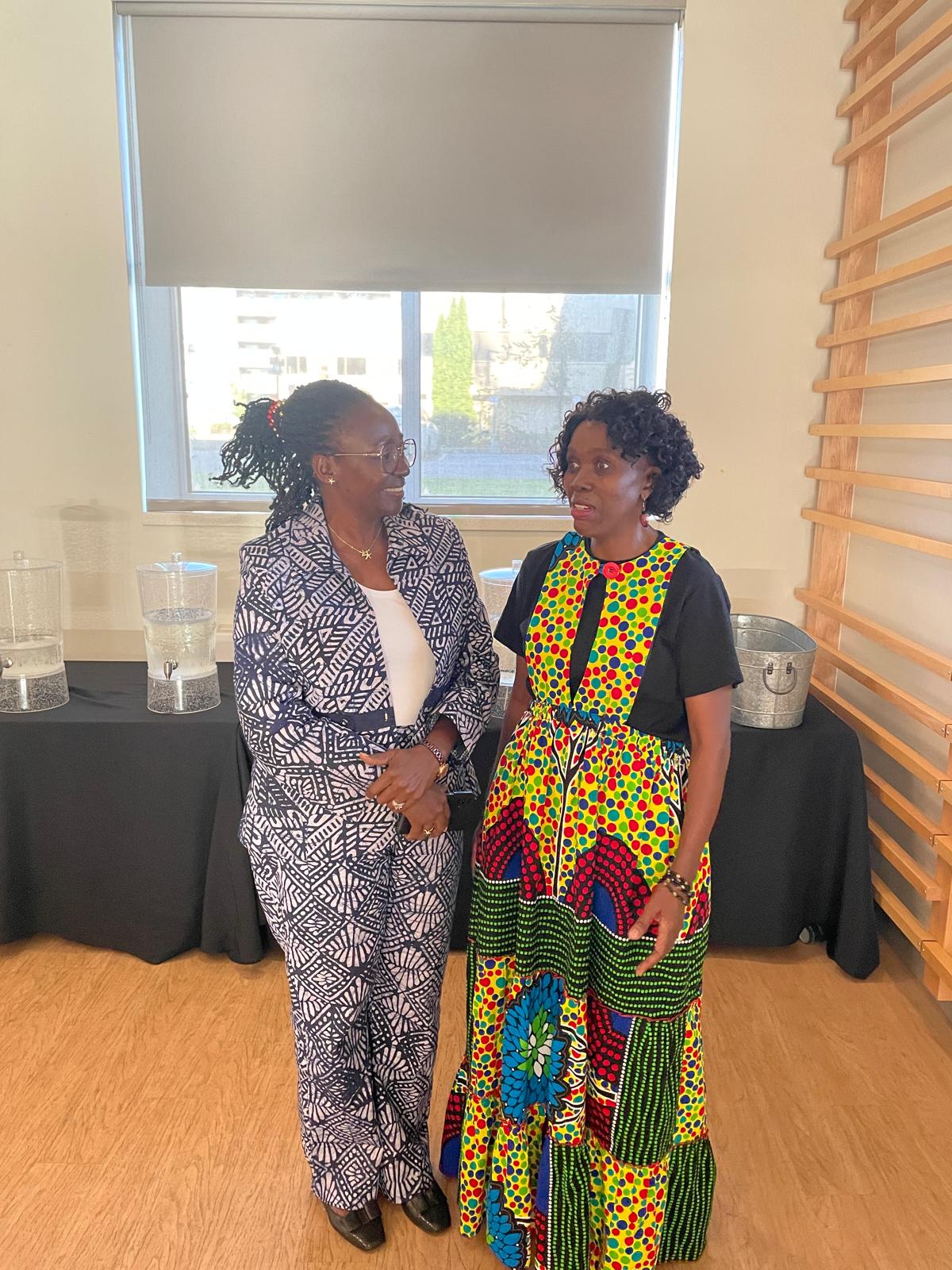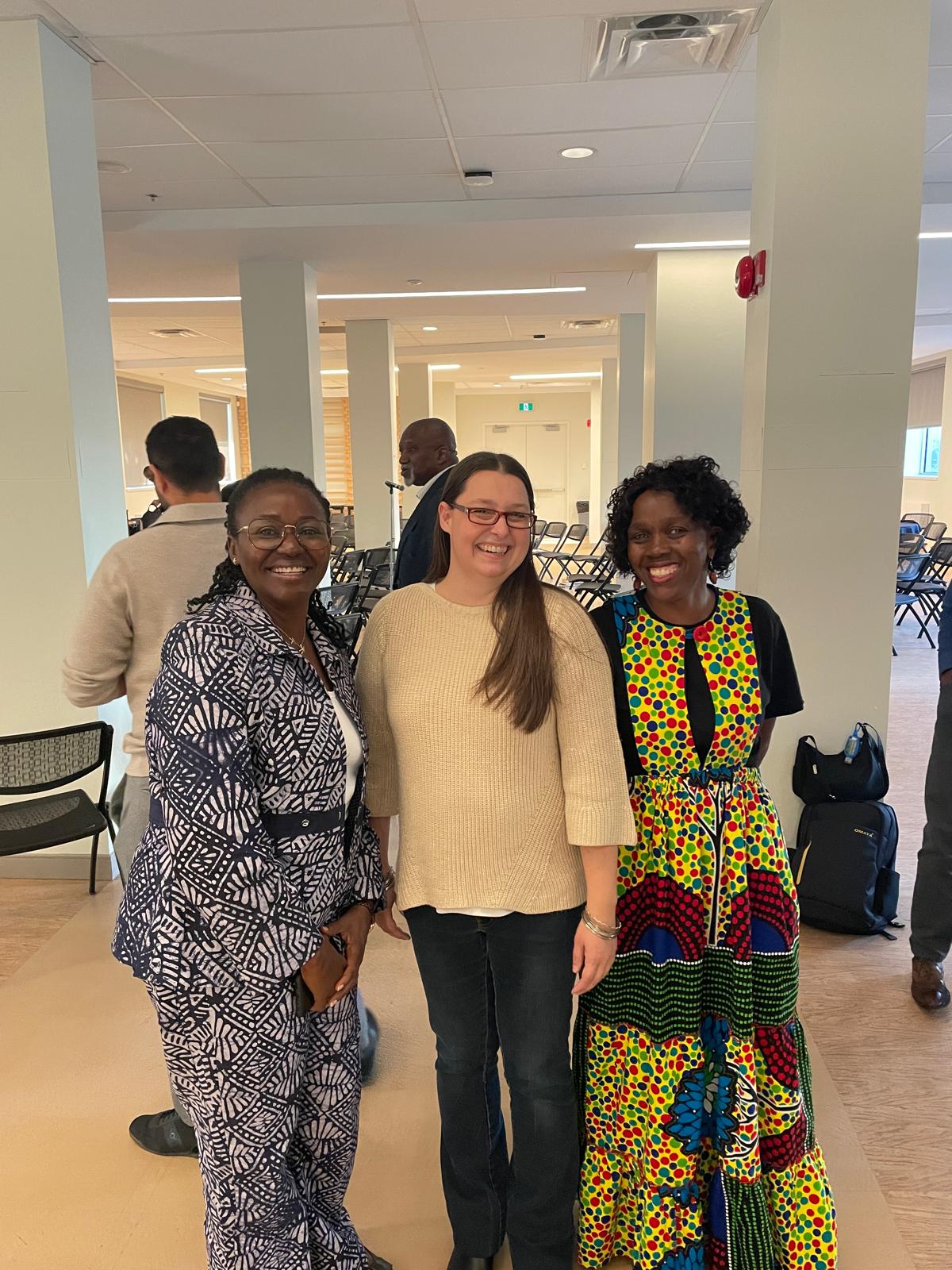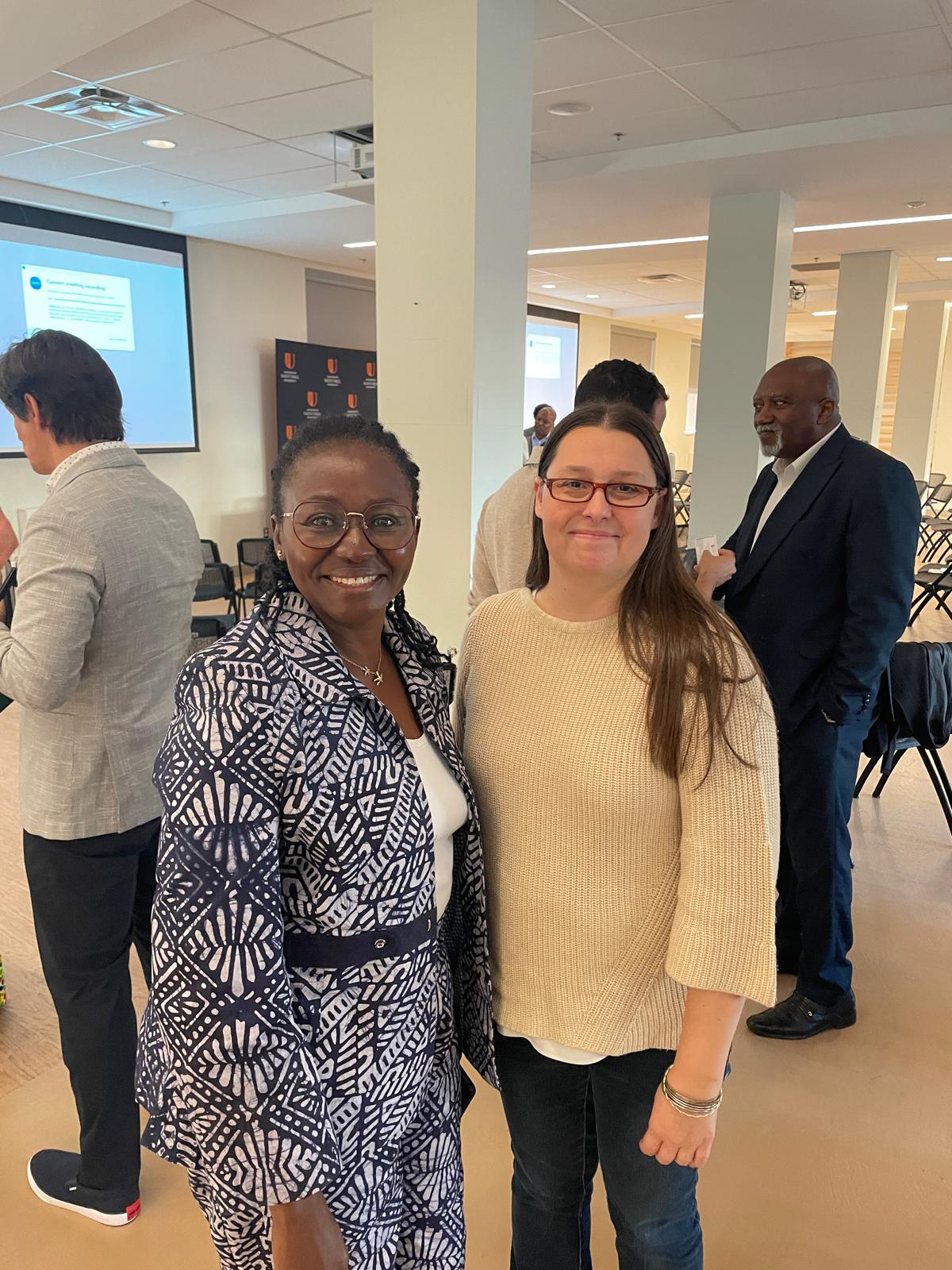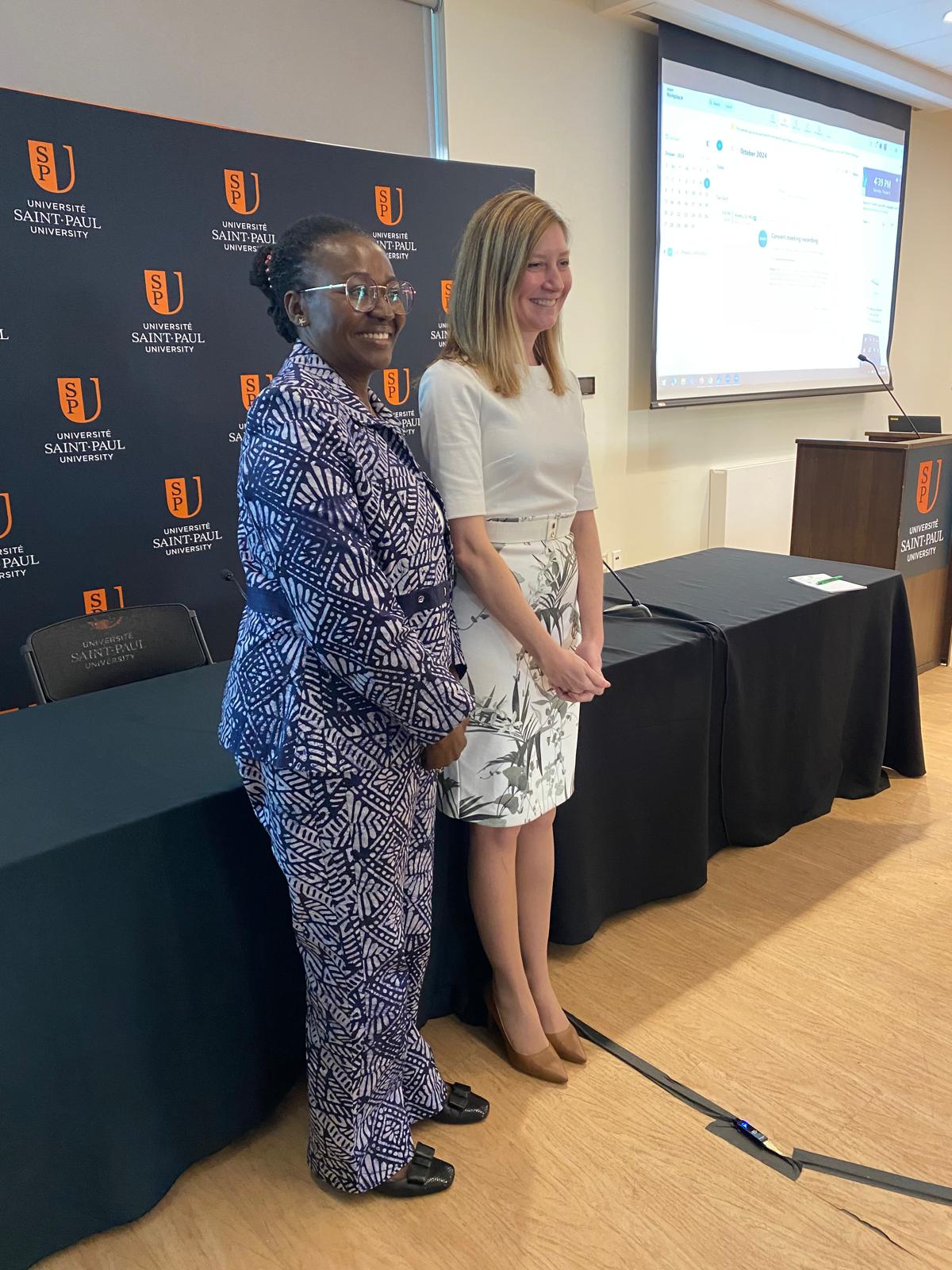Expanding Horizons: A Tough Decision with a Positive Outlook
Carleton’s QES-AS-WA project warehoused at the Institute of African Studies, offers her QES scholars an array of learning opportunities: multiple capacity-building workshops by Carleton staff and faculty, obtaining support through a faculty research mentor, access to Carleton’s library services, and be paired with a non-academic placement partner (QES Placements).

With Susan Namulindwa -Executive Director of Africa Trade Desk
QES Placements offer scholars valuable experiences in a non-profit, governmental, or industry settings, contributing to their growth as well-rounded researchers. The search for an appropriate fit for my Non-Academic Research Placement Partner led to a series of engaging conversations, beginning with the Chief of Operations-Africa Trade Desk(ATD)-Victoria Schorr. A few days later, Victoria responded with a carefully worded negative-positive two-sided email balancing disappointment and encouragement-we are not taking you but we are not letting go! She asserts it was a super difficult decision deciding who to bring on board- a testament that Carleton clearly knows the kind of people they like to work with. ATD at the time had no client for them to maximize the full compliment of my skill set, they wanted me to have something great and fulfilling that uses all my experience to its fullest.

Celina with Susan and Victoria
In her kind words:
‘’You would be a fabulous ATD team member. You also clearly did your homework and are right in line with ATD. I loved talking to you!’’
Given that I embody the kind of person they like to collaborate with with, a proposal was made to keep this relationship moving forward and she scaled it up to the CEO and Founder, Susan Namulindwa. At the end of our chat, Susan invited me to, without fail attend the in-person session of the Africa Study Group Conference.
Back to the drawing board, Nduka Otiono-the PI of Carleton’s QES-AS-WA project re-directed my QES Placement search to the health science domain for a more appropriate fit. I quickly drew up a list-Health Canada, Public Health Ontario, Ottawa Public Health and Pesticides and Pest Management. To accelerate processing the change of placement partner, the International Project Coordinator-Farhana Moshira was on hand to run with these suggestions to solicit placement partnership. In a swift move, Nduka pulled a placement place with Prof. Josephine Etowa who graciously offered me a space at CO-CREATH lab, University of Ottawa. The CO-CREATH lab setting aligns well with my goal of using social sciences and education to drive transformational community engagement in health.
Back to the conference invitation, the Canadian International Council (CIC) Ottawa’s Africa Study Group event was on the Importance and Role of the Canadian African Diaspora in Trade and Foreign Policy. It was scheduled for the 5th of October 2024 at St. Paul University, Multi-disciplinary Room 223, Main Street, Ottawa, Ontario. I arrived early and settled in before the opening ceremonies. Navigating from Gloucester to Main Street was straightforward, as it is located near my research placement at the CO-CREATH Lab.
It was a unique opportunity to connect with a global audience and engage in insightful conversations about the past, present and future of Canadian African Diaspora relations. It was also a thought-provoking event, prompting sobering reflections on course correcting negative narratives and working at new impact pathways.

Victoria (Chief of Operations Africa Trade Desk) and Celina
The key-Address was given by Honorable Robert Oliphant, Parliamentary Secretary to the Minister of Foreign Affairs., while the Keynote was given by Prof Wisdom Tettey- from the University of Toronto Scarborough. Cheryl Urban, Assistant Deputy Minister for Sub-Sharan Africa took the special remarks just to mention a few.

Cheryl Urban, Assistant Deputy Minister for Sub-Sharan Africa
Takeaways and Insights
i) While we must remain aware of the challenges, it is essential to emphasize the opportunities.
ii) Africa is rich in resources, both above and beneath the ground.
iii) True success is realized when women, girls, and those who are different are granted full rights.
iv) Africa possesses the natural resources needed not only to sustain itself but to help feed the world.
v) African voices must be heard in the corridors of power.
vi) The starting point lies in listening and fostering strategic relationships.
vii) Nothing about Africa without Africa—the continent must play a central role in decisions affecting its future.
viii) Africa’s youthful population is a demographic dividend that must be nurtured and properly harnessed.
ix) The exigencies of the moment calls for a new approach—we must break away from working in silos.
x) There is a crucial need for the transfer of knowledge and skills.
Lesson Learnt
The overarching theme running across the speech series, panel discussions and general remarks was Africa’s rich endowment in both human and natural resources. There is a need to harness the changing demography- its teeming youthful population. It was a charge to refrain from mere rhetoric, to be creative and innovative in seizing the abundant opportunities despite challenges; and a clarion call to duty and action in the moment.
Celina Aju-Ameh
2024 QES Scholar
Institute of African Studies
Carleton University